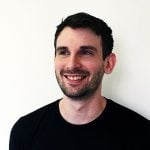As you navigate the MBA application process, do you ever feel like the websites, brochures and talking points for top MBA programs have blended together? Indeed, it has become more important than ever for schools to rely on innovative ways to differentiate themselves.
At the Stephen M. Ross School of Business at the University of Michigan, the carefully curated process of admissions is ever evolving. Director of Admissions Soojin Kwon is known for putting a particularly personal fingerprint on the process, posting videos and written messages to a behind-the-scenes blog throughout the year.
In a recent interview, Kwon, who joined Ross admissions in 2004, spoke with us about Ross’ unique approach to interviews and how its recruiting and evaluation process has evolved.
Kwon highlighted the fact that she and her team are keenly interested in understanding an applicant’s ability to work on teams. “Students will need to work with and manage others throughout their careers. It’s how they’ll do much of their work as students at Ross,” she says.
Now, many an MBA program will cite teamwork as an integral part of the business school experience, but it is so important to the culture at Ross that it’s been baked into the admissions process itself. Students who come to interview at Ross experience much more than the standard one-on-one admissions interview.
Interviewees who come to campus participate in the team exercise, in which applicants work together in teams of four to six—formed from the 40 to 75 students interviewed by Ross during each on-campus interview day—“to develop a mock business challenge and solution using words they literally pick out of a bag,” Kwon explains. “Evaluators observe how the group interacts, communicates and presents its mock case. The exercise gives us insight into an applicant’s interpersonal, communication and teamwork skills as well as how they deal with an unfamiliar situation.”
Next, interviewees are split into two groups: One group completes its one-on-one interviews while the other group remains in the classroom to meet students and staff from Ross’ wide-ranging institutes and centers. After 45 minutes, the two groups switch places. When both groups have completed each portion, they then head into the team exercise before grabbing lunch together at a local pizza joint. After lunch, interviewees attend an “unplugged” Q&A session with a panel of current students, followed by a mock class taught by a Ross faculty member.
Team Exercise Shines Spotlight on Interpersonal Skills
“Before the team exercise, we didn’t have visibility into an applicant’s interpersonal skills. The one-on-one interviews gave us a glimpse into how a candidate might perform in a recruiting [job] interview,” she says. “[But what] we didn’t have insight into was how they interact with others, especially teammates they didn’t know, whose backgrounds, knowledge and perspectives might be very different from their own. That’s how business school and the workplace will be.”
In addition to giving the admissions committee another data point about applicants, Kwon points out that the team exercise also gives applicants a sense of what their potential classmates at Ross will be like. In a recent conversation, a Ross MBA student shared that she loved having the chance to meet potential classmates and eventually became housemates with an interviewee she met at the team exercise, says Kwon.

Kwon sees interview days as a two-way street. “It’s not just about us evaluating candidates during the interview day—we also want candidates to have an opportunity to evaluate us through the numerous conversations and interactions they’ll have with students, staff and faculty throughout the interview day,” she says. “It’s important to find the right fit when looking for an MBA program. ”
Since Ross launched the team exercise, more applicants have chosen to do their interviews on campus in Ann Arbor than in their own cities, even though that continues to be option, according to Kwon. She also notes that yield among team exercise participants—that is, the rate of applicants who opt to enroll at Ross after gaining admission—has been higher than that of applicants who don’t participate in the team exercise.
Another major change in Ross’ process has been a focus on personalized interactions. As more candidates have begun vetting schools and preparing applications earlier and earlier, Ross has advanced its recruiting timeline to connect with students at the first possible opportunity in the process. To this end, the number of annual events the school hosts for applicants has steadily increased. The Ross admissions staff hosted 228 events last year, including webinars, as well as 125 off-campus events, in locations as far off as Dubai.
“The admissions team knows a lot more about applicants than we ever did,” Kwon says. “We try to understand not only what they’ll bring to the table, but also what their goals and interests are and try to connect them with people in our community who can share their insights on careers in their interest areas.”
The school has also recruited and compiled a database of nearly 200 student ambassadors, which can be searched and filtered by career interest, student club involvement, citizenship and region of the world. Kwon describes the ambassador network as a perfect example of Ross’ “Pay it Forward” culture. “Our first-year students love having the opportunity to repay the favor they got when going through the admissions process a year or two prior. And it’s helpful for applicants to learn about the school through the eyes and experience of current students.”
“We’re trying to make the process feel less anonymous and generic,” Kwon notes. “We want to know applicants as the unique and interesting individuals that they are.” Ross will continue to fine tune its approach to interviews and recruiting with that goal in mind.






